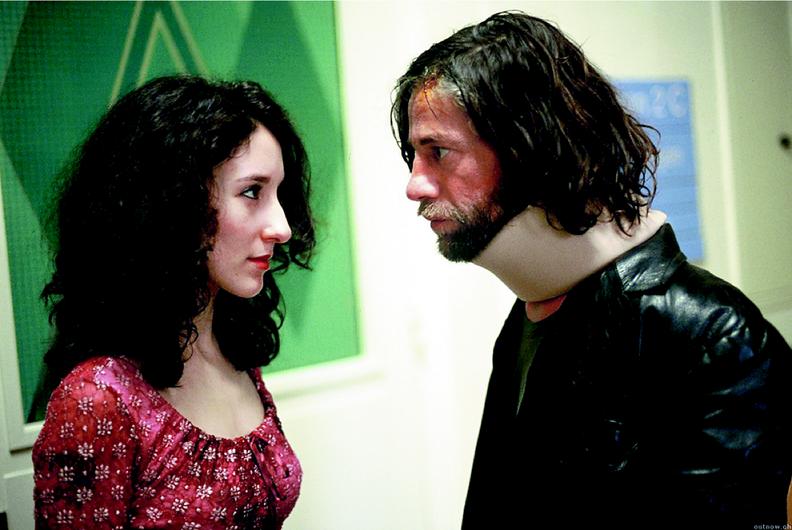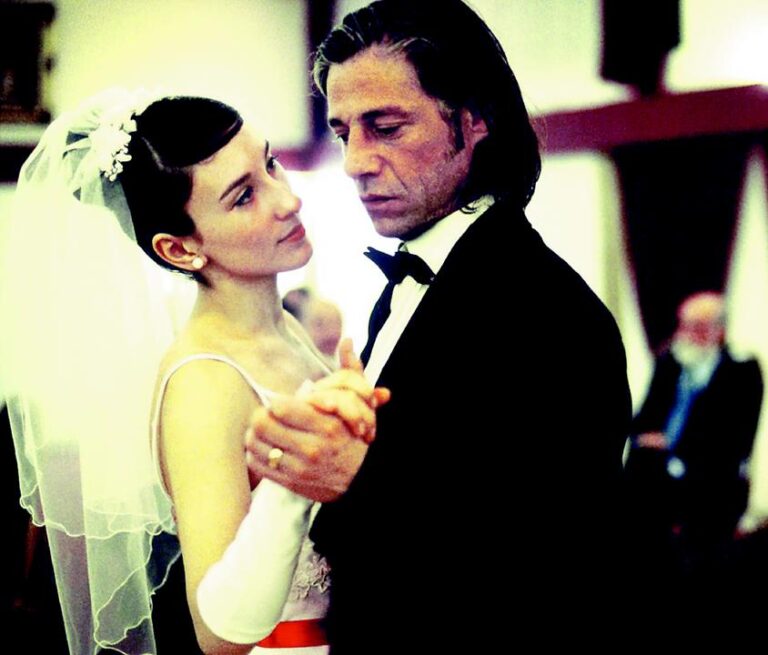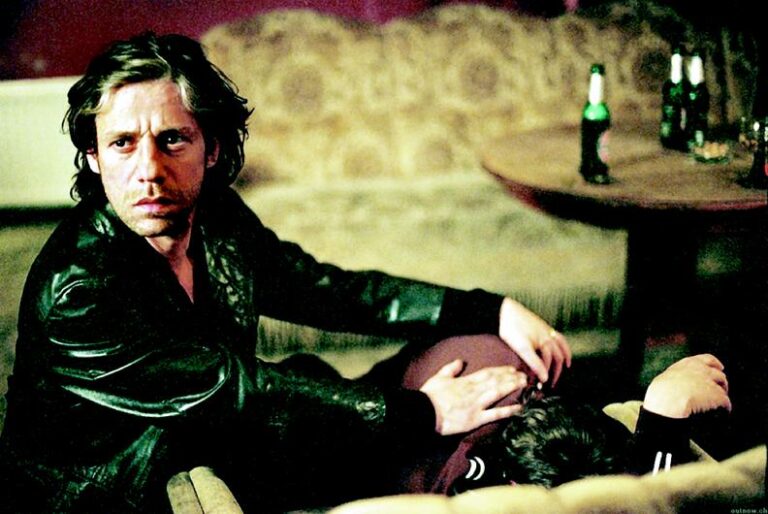In purely Hollywood terms, the film's would-be lovers, Cahit (Birol Ünel) and Sibel (Sibel Kikulli), don't exactly “meet cute.” He's a directionless rock 'n' roll boozer (and ex-pat Turk) drinking himself through a mid-life crisis in immigrant–heavy Homberg. One fateful evening, he drives his car head on into a brick wall (the more literal embodiment of the film's title) and ends up in both a neck brace and a psychiatric hospital. She's a reckless twentysomething, desperate to escape the too-traditional embrace of her Muslim family. One fateful night, she slits her wrists and ends up in the same hospital as Cahit.
Overhearing a conversation in the waiting room, she realizes Cahit is Turkish—just like her–and immediately asks him to marry her. He, naturally, blows her off. But, over the course of their stay at the hospital for “observation,” Cahit and Sibel discover a certain kinship–beyond, of course, their Middle Eastern heritage and suicidal tendencies. She figures if she gets married to an older Turkish man, her strict parents will allow her to move out of the house. Then she'll be free to get a tattoo, booze it up, hang out at clubs and engage in all sorts of Western-style one-night stands—basically live the life that Cahit has been stagnating in for at least a couple decades. If she married Cahit, it wouldn't even be a traditional marriage. She'd be more like a roommate. For all the wrong reasons, Cahit eventually agrees.
On their wedding night, Sibel picks up a bartender and spends the night with him—a clear-cut harbinger of things to come.
Head-On uses the tried-and-true movie formula of a “marriage of convenience” as a jumping-off point for all sorts of ruminations on tortured modern-day relationships. The film plays a little like Green Card as rewritten by Hubert Selby Jr. (gutter poet author of Last Exit to Brooklyn and Requiem for a Dream). It's clear where the film should be heading: Her youthful joie de vivre is exactly what burned-out, bitter Cahit needs. His been-there-done-that wisdom is exactly what naïve, impulsive Sibel needs. And the conventional constraints of old-fashioned love and marriage are exactly what both of them need to get back in touch with their abandoned roots and abraded emotions. But, for all its punk rock romance, Head-On is more tragedy than comedy. Unfortunately, Sibel's heedless promiscuity and Cahit's burnt-in nihilism keep getting in the way of “happily ever after.”
Birol Ünel, with his scar-tissue, stubble and nicotine-stain personality, is like Viggo Mortensen crossed with Lou Reed. Sibel Kikulli, meanwhile, has a tactile, cat-eyed energy that allows her to fluctuate between free-spirit gamine and overindulgent party girl. Scandal erupted after Head-On won a Golden Bear for Best Film at the Berlin International Film Festival and it was revealed that the film's first-time actress was, in fact, a seasoned porn star. All I can say is Kikulli's work speaks for itself; her fearless performance stands toe-to-toe with that of her equally raw co-star.
The film, though dark, never fully surrenders to the unpleasant underside of life. It's Barfly with a glimmer of hope. This is helped partially by a Greek chorus of sorts, a Turkish orchestra camped out on the banks of the Bosphorus that provides occasional musical interludes—chapter breaks, if you will–indirectly commenting on the film's action through the melodramatic words of traditional Turkish folk songs. Are we meant to take Head-On as a sort of cautionary urban myth? A seedy fairy tale about love and substance abuse? Possibly. With its propulsive energy and hard-edged characters, Head-On reads like a deeply romantic story for a deeply cynical age.





